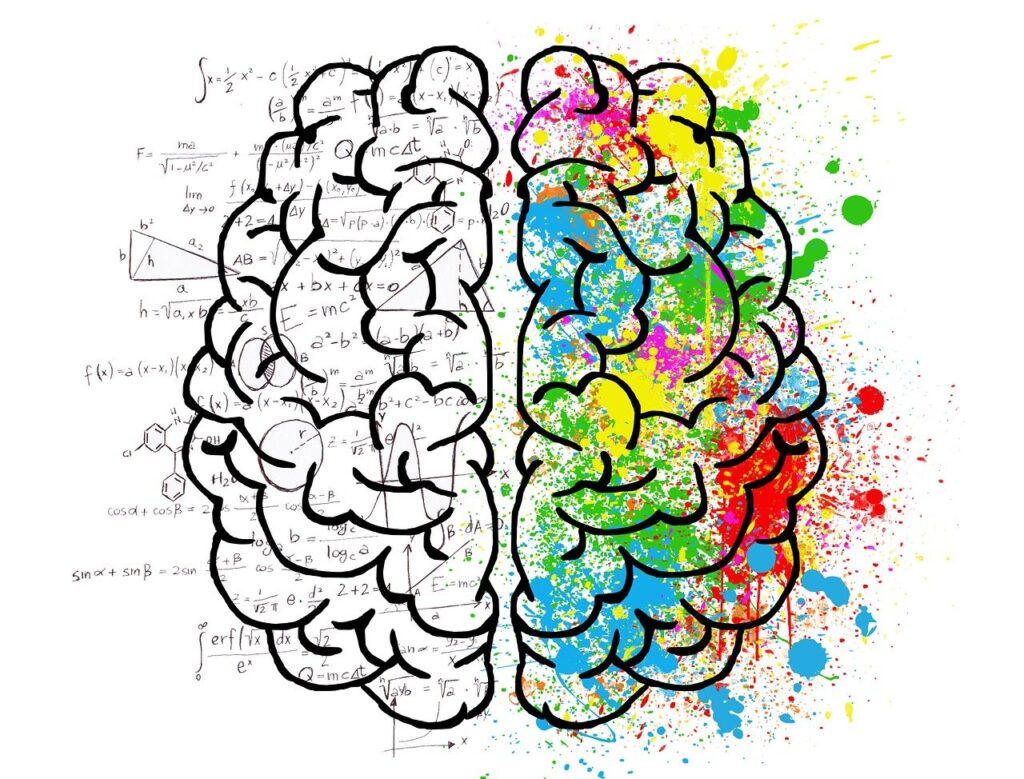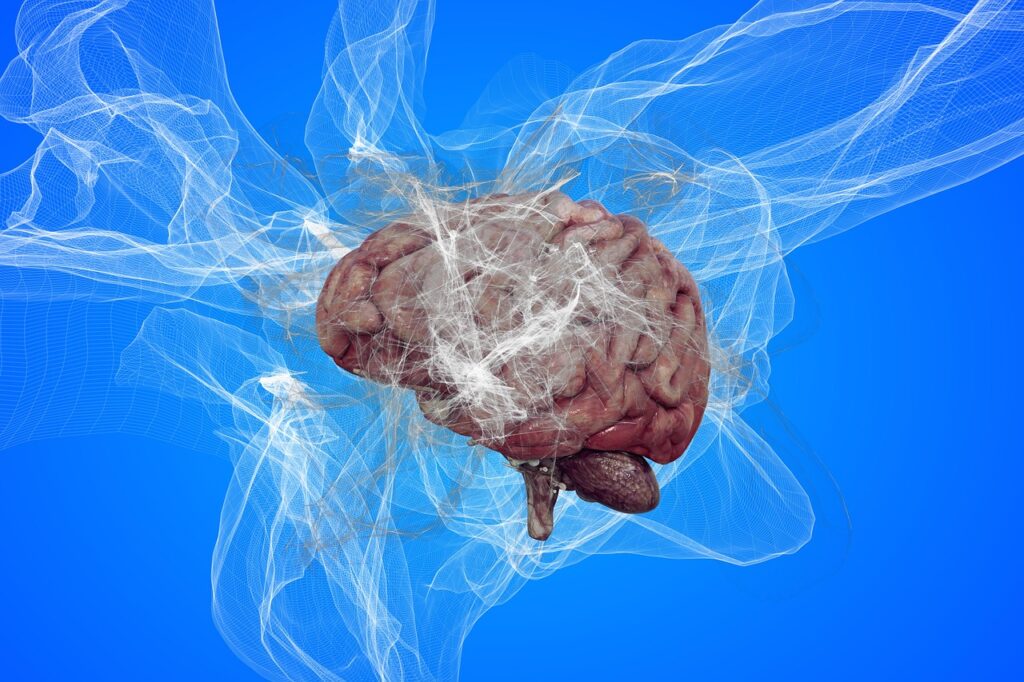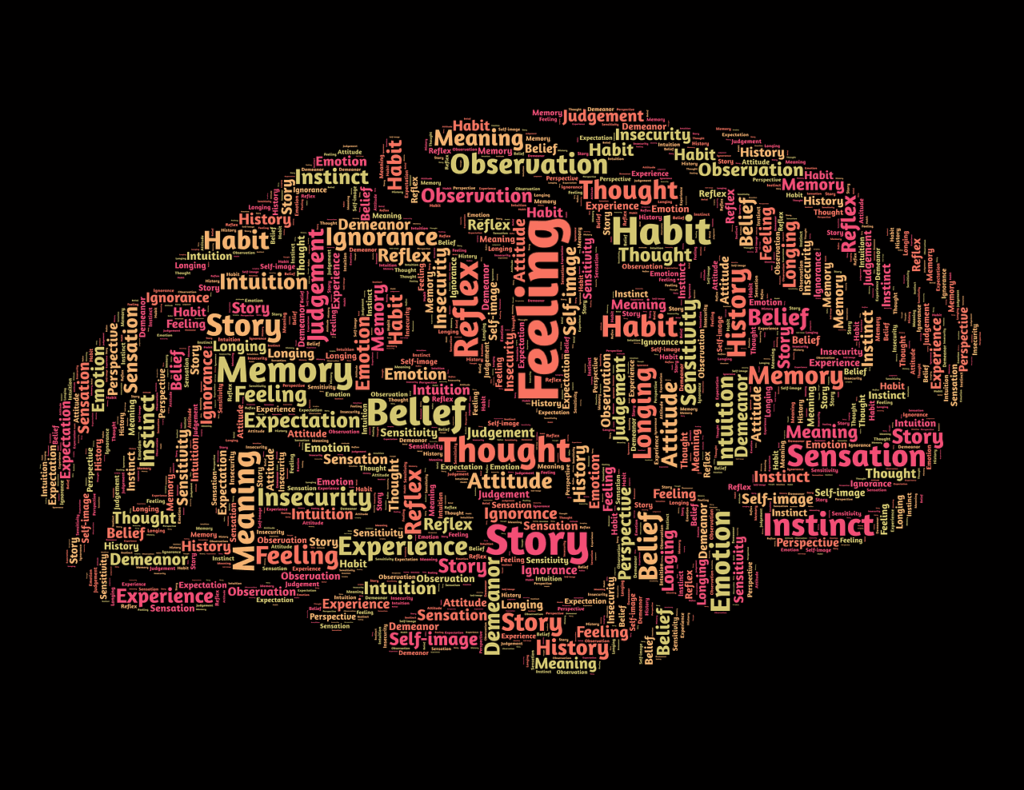
At just three pounds, your brain may not seem particularly large, but it is an undisputed powerhouse, the command center orchestrating every thought, emotion, and movement that defines you. Within its intricate networks lie your personality, your memories, and the billions of nerve cells, known as neurons, that constantly send information throughout your entire body. When these vital brain cells are not functioning optimally, the consequences can be profound, affecting everything from muscle coordination and sensation to the sharpness of your thinking.
Unlike many other cells, the brain doesn’t readily replace neurons that are damaged or destroyed, underscoring the critical importance of safeguarding these irreplaceable components. Factors like head injuries, the use of certain drugs, and chronic health conditions such as Alzheimer’s and Parkinson’s disease can lead to significant brain cell damage or loss. The good news, however, is that while these risks exist, you possess a remarkable degree of influence over your brain’s destiny.
Developing proactive brain health habits is a key strategy to maintain cognitive vitality throughout your life. This includes adopting safety measures, keeping your brain actively engaged, and making informed lifestyle choices that support its complex functions. Drawing on extensive research and expert insights, we’ve compiled 14 powerful, evidence-based actions you can take starting today to fortify your brain against decline and enhance its resilience. Let’s explore the first seven foundational steps to build a healthier, more vibrant brain.
1. **The Power of Physical Activity: Work Up a Sweat**When it comes to maintaining a sharp mind, few interventions are as potent and universally beneficial as regular physical activity. Research consistently demonstrates that individuals who are physically active tend to exhibit better cognitive function and a lower risk of developing conditions like Alzheimer’s disease. Beyond its direct impact on brain health, exercise offers a cascade of systemic benefits, including improved balance, flexibility, strength, increased energy levels, and an uplifted mood.
For most healthy adults, the Department of Health and Human Services recommends aiming for at least 150 minutes per week of moderate aerobic activity. This could be anything from a brisk walk that elevates your heart rate and makes you breathe a little harder, to cycling or swimming. Alternatively, 75 minutes of vigorous aerobic activity, such as jogging or running, can provide similar benefits. The key is to spread this activity throughout your week, and even short bursts, like a few 10-minute walks each day, can accumulate significant advantages.
The benefits of exercise extend beyond mere cardiovascular health. While keeping your heart and blood vessels healthier, and better managing blood pressure and regulating blood sugar, it also directly impacts brain physiology. There’s compelling evidence that physical activity increases the activity of neurotransmitters – the chemical messengers that allow brain cells to communicate – and trophic factors, which are substances crucial for cell growth and survival. This intricate biological response helps keep your mental operations humming along smoothly.
Any form of physical activity that gets your body moving can contribute to this mental boost. Whether you enjoy dancing, walking through your neighborhood, or hopping on a bike, the most important aspect is consistency. Choosing activities you genuinely enjoy and making them social by joining a group or finding an exercise buddy can further enhance both your motivation and the cognitive benefits, adding the invaluable element of social interaction.
Read more about: Beyond the Big Screen: Tom Hanks’ Candid Battle with Type 2 Diabetes and the Practical Steps That Transformed His Health Journey
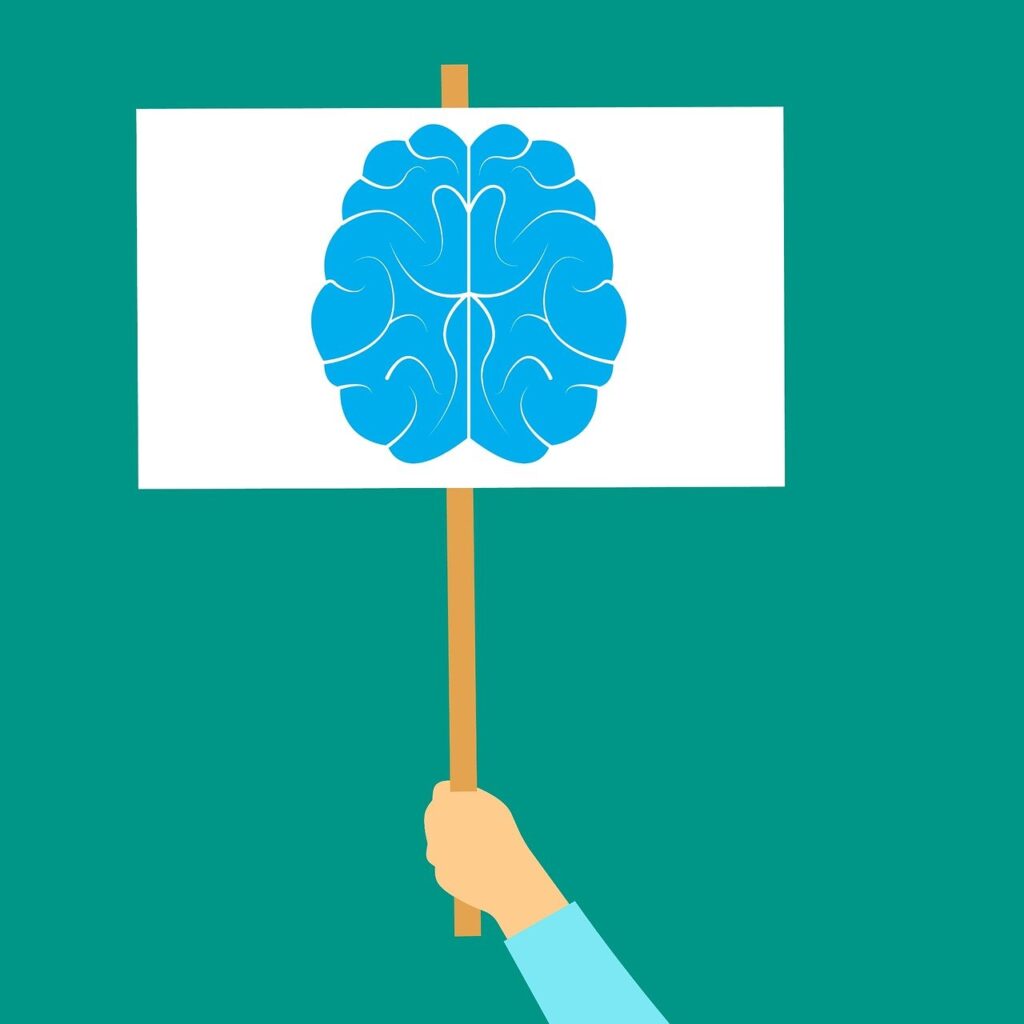
2. **Head Protection: Guarding Your Most Valuable Asset**A brain injury, even a seemingly minor one, can have profound and lasting consequences on a person’s life, impacting crucial functions such as thinking, memory, coordination, speech, and emotional regulation. Given that the brain cannot replace damaged or destroyed neurons, safeguarding your head from trauma is an absolutely critical step in preserving cognitive health throughout your lifespan.
One of the most straightforward and effective ways to protect your brain is to consistently wear a helmet during any activity that carries a risk of head injury. This includes popular recreational pursuits like biking, skiing, and horseback riding, as well as when operating motorcycles, snowmobiles, or all-terrain vehicles. A helmet acts as a vital shield, absorbing impact and significantly reducing the likelihood of severe brain damage.
Beyond recreational activities, head injuries commonly result from car accidents and falls. To minimize the risk of impact during vehicle travel, always fasten your seatbelt. At home and in unfamiliar environments, vigilance is key. Exercise caution with your footing on ladders, uneven ground, or cluttered stairs and hallways. Ensuring stairways are well-lit and that all carpets and rugs are securely attached to the floor can also prevent dangerous slips and trips. Simple preventive measures can make an enormous difference in protecting your brain from preventable harm.
Read more about: In the Boardroom: Decoding 15 Critical Control Mechanisms for Auto Executives in Joint Ventures and Venture Deals
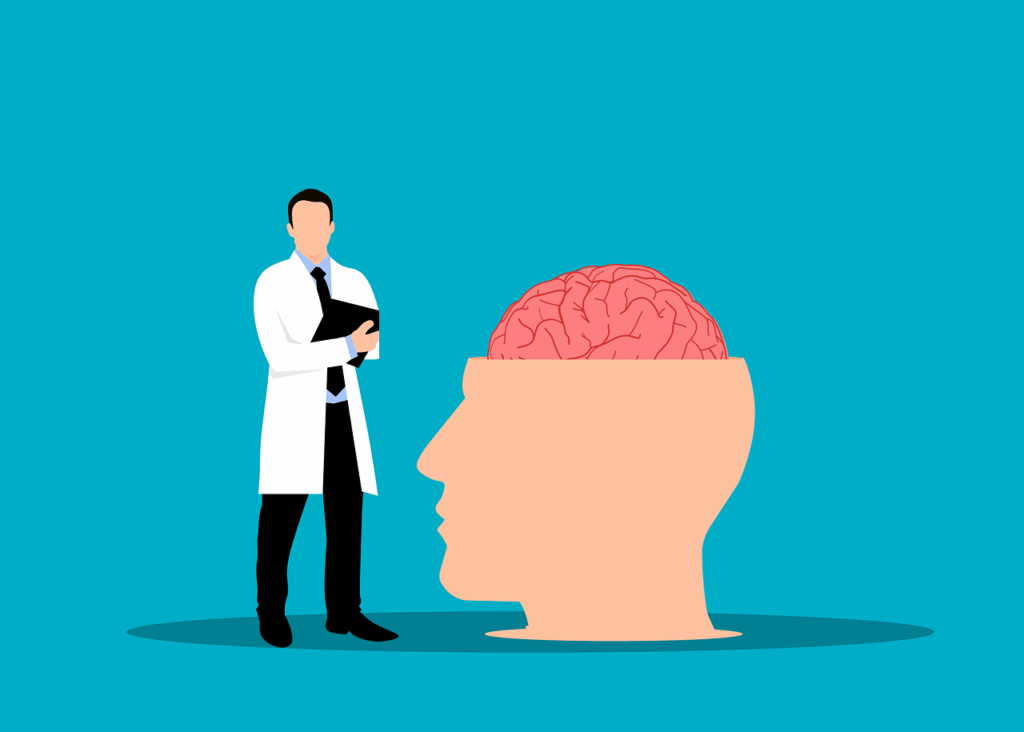
3. **The Crucial Role of Managing High Blood Pressure**High blood pressure, or hypertension, is not merely a concern for your heart; it poses a significant and insidious threat to your brain health. Chronically elevated blood pressure can wreak havoc on the delicate small blood vessels that supply your brain, leading to silent strokes and subtle changes in white matter that can silently impair memory and thinking abilities over time. Uncontrolled high blood pressure, particularly in midlife, significantly escalates your risk of developing dementia later in life.
The encouraging news is that this risk is highly modifiable. Actively controlling your blood pressure helps to preserve vital brain function. Studies have consistently shown that treating hypertension can effectively reduce the risk of cognitive impairment and dementia. The first step towards control is knowing your numbers; regular blood pressure checks are essential, with an optimal reading around 120/80 mmHg. If your readings are consistently elevated, consulting your healthcare professional for a management plan is paramount.
Lifestyle interventions play a pivotal role in blood pressure control. Adopting a heart- and brain-healthy diet, such as the DASH or Mediterranean diet, which emphasizes fruits, vegetables, whole grains, and lean proteins while reducing salt and saturated fats, can be highly effective. Regular physical activity also makes your heart stronger and helps lower blood pressure. If lifestyle changes alone aren’t sufficient, effective medications are available, and consistent adherence to prescribed treatment is crucial for protecting your brain’s intricate blood supply. Additionally, moderating alcohol and caffeine intake can prevent temporary spikes and further support healthy blood pressure levels.
Read more about: Why Hugh Jackman Swears By 16:8 Intermittent Fasting: Your Guide to Wolverine-Level Fitness and Health
4. **Fueling Your Brain: The Impact of a Healthy Weight and Diet**Just as your body thrives on proper nutrition, your brain equally depends on the right fuel to perform at its peak. Maintaining a healthy weight, particularly in midlife, is strongly associated with a lower risk of cognitive decline and dementia. This is because obesity often contributes to other health issues like diabetes, hypertension, and chronic inflammation, all of which can damage brain cells and blood vessels over time. The goal is to nourish your body with a balanced diet and engage in regular exercise, creating a synergistic effect that benefits both your physical and cognitive well-being.
While there isn’t a single ‘magic’ brain food, extensive research highlights several dietary patterns that are profoundly beneficial. The Mediterranean diet, for example, is a standout, emphasizing a rich intake of vegetables, fruits, whole grains, fish, nuts, and olive oil, while wisely limiting red meat, sweets, and processed foods. This diet, rich in antioxidants and healthy fats, is linked to superior cognitive function and a reduced risk of dementia, actively protecting your brain cells from oxidative stress. Another highly recommended approach is the MIND diet – a clever hybrid of the Mediterranean and DASH diets – specifically tailored to focus on nutrients believed to support brain health.
To adopt a brain-healthy eating pattern, prioritize loading up on colorful vegetables and berries, which are abundant in antioxidants that combat cellular damage. Incorporate healthy fats from sources like fish, avocados, nuts, and olive oil, as these are crucial for supporting robust brain cell membranes, while cutting back on harmful trans fats and excessive saturated fats often found in fried or ultra-processed foods. Aim to eat fatty fish, such as salmon, mackerel, and trout, a couple of times a week to ensure an adequate intake of beneficial omega-3 fatty acids.
Beyond specific food choices, practical habits are key. Mind your portion sizes to help maintain a healthy weight and listen to your body’s genuine hunger cues, avoiding eating out of boredom or stress. Crucially, staying well-hydrated is also fundamental, as even mild dehydration can impair concentration and mood. Remember, even a moderate weight loss of 5-10% of your body weight, if you are overweight, can significantly improve blood pressure, blood sugar, and reduce the overall strain on your brain’s delicate blood supply, making a tangible difference in your long-term cognitive health.
5. **The Unexpected Benefits of Limiting Alcohol Consumption**When considering alcohol’s impact on your brain, the consensus among health experts is clear: moderation is absolutely key, and less is often more. Heavy alcohol use, particularly over extended periods, can lead to measurable shrinkage in certain brain regions, significantly impair cognitive function, and dramatically elevate your risk of developing dementia. Furthermore, excessive drinking can indirectly harm your brain by contributing to other detrimental health conditions, including high blood pressure, heart disease, and an increased likelihood of accidents that can result in traumatic head injuries.
The Lancet Commission has even identified alcohol abuse as one of the modifiable risk factors for dementia, underscoring its significant role in cognitive decline. So, what constitutes ‘moderation’? Generally, health guidelines advise no more than one drink per day for women and up to two drinks per day for men, with even lower limits suggested as we age. It’s crucial to understand that binge drinking—consuming many alcoholic beverages in a short timeframe—is particularly harmful, potentially causing more damage than a consistent but low daily intake.
There’s a growing body of evidence that suggests there might be no truly ‘safe’ level of alcohol for optimal brain health, implying that any reduction in intake is likely beneficial for everyone. Practical tips for brain-friendly drinking include strictly adhering to recommended limits; for instance, enjoying a single glass of wine with dinner is generally fine, but consuming an entire bottle by yourself is not. Incorporating alcohol-free days into your week can give your brain and liver a much-needed break. If you don’t currently drink, there’s no health reason to start, and for those who do, even considering cutting back or quitting entirely can yield significant improvements in sleep quality, mood, and concentration—all crucial pillars of robust brain function. If you suspect your alcohol consumption is problematic, seeking guidance from your healthcare provider can provide access to valuable resources and support.
Read more about: Hollywood’s Health Playbook: Unveiling the Surprising Diet Secrets of Tinseltown’s Fittest Stars for Your Own Wellness Journey

6. **Quitting Smoking: A Lifeline for Your Brain**While the devastating effects of smoking on lung and heart health are widely known, its detrimental impact on the brain is equally severe and often underestimated. Smokers face a significantly higher risk of both stroke and dementia compared to non-smokers. The toxic chemicals present in cigarettes trigger widespread inflammation and oxidative stress throughout the body, directly damaging delicate brain cells and accelerating cognitive decline. Furthermore, smoking actively contributes to the buildup of fatty plaques within arteries, a process known as atherosclerosis, which severely restricts crucial blood flow to the brain.
Indeed, some research has directly linked smoking to an estimated 5% increased population risk for Alzheimer’s disease and other forms of dementia, unequivocally positioning it as one of the top preventable risk factors for these debilitating conditions. The single most impactful action a smoker can take for their brain—and indeed, for every organ in their body—is to quit. While challenging, the journey to becoming smoke-free is profoundly rewarding, and it’s truly never too late to begin.
Compelling studies show that individuals who successfully quit smoking, even later in life, experience a substantial reduction in their risk of cognitive decline when compared to those who continue to smoke. Within just a few years of cessation, the risk of stroke drops significantly, circulation improves dramatically, and the brain benefits from enhanced oxygenation and nutrient delivery. To increase your chances of success, talk to your doctor about developing a comprehensive cessation plan, which may include nicotine replacement therapies (patches, gum), prescription medications, professional counseling, or support groups.
Additionally, actively avoid exposure to second-hand smoke, as it too can negatively affect brain health over time, with studies linking it to memory problems in non-smokers. Remind yourself regularly of the profound brain rewards that await: clearer focus and improved memory, a reduction in often-experienced ‘brain fog,’ and a significantly lower risk of dementia and stroke. Quitting smoking is undoubtedly difficult, but every cigarette unsmoked is a tangible victory for your brain’s long-term health. Celebrate each step of progress and persevere, knowing that with assistance and determination, you can achieve a smoke-free life and provide your brain with the clean, healthy environment it truly deserves.
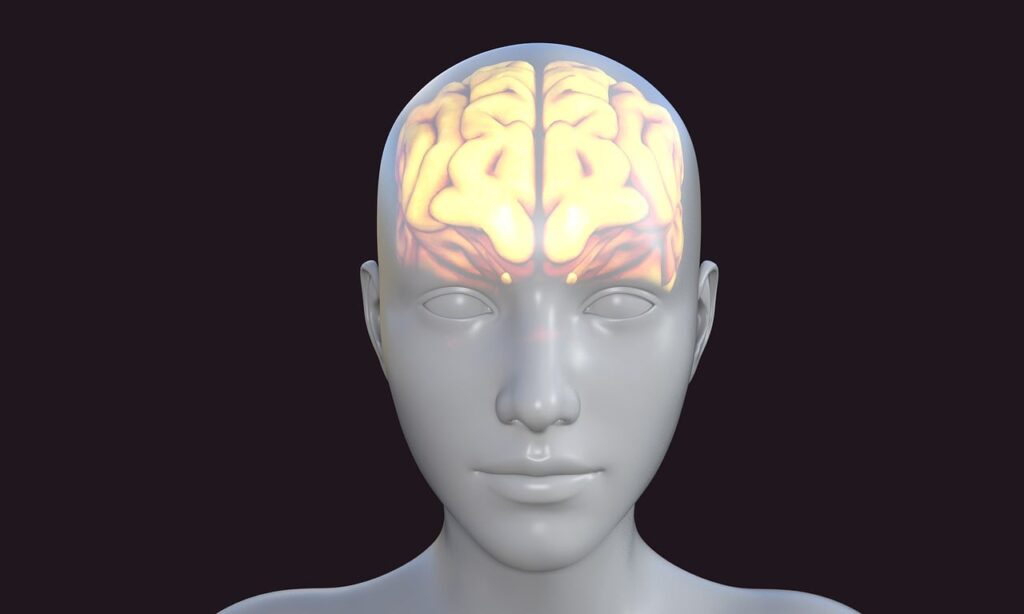
7. **Prioritizing Sleep for Optimal Brain Function**Many people view sleep as a period of inactivity, but for your brain, it’s quite the opposite – it’s the human equivalent of plugging in your phone to charge, a vital period of intense maintenance and repair. Your brain doesn’t simply shut down during sleep; in many ways, it’s busier than during your waking hours, entering a distinct mode to perform numerous critical activities that cannot be accomplished while you’re awake. This essential ‘maintenance’ work ensures you’re ready to tackle the demands of the next day.
The profound restorative power of sleep is indispensable for optimal brain function, memory consolidation, and overall mental alertness. A good night’s rest helps to improve cognitive performance, makes daily tasks easier to manage, and importantly, aids in easing both stress and depression. Crucially, the maintenance activities that occur during sleep actively help your brain fend off dementia and age-related cognitive decline, making quality sleep a non-negotiable component of a comprehensive brain health strategy.
Making healthy sleep a top priority is paramount. Most adults require between 7 to 9 hours of quality sleep per night to feel and function at their best, both physically and mentally. Research highlights the serious consequences of insufficient sleep: consistently sleeping for fewer than five hours a night can double your risk of dementia, and even persistent difficulty falling asleep can elevate this risk. It’s not just the duration of sleep that matters; the quality is equally vital. If you’re in bed for eight hours but wake up feeling exhausted, it’s a clear signal that you’re not achieving the restorative sleep your body and mind desperately need.
If you find yourself struggling with sleep, it’s important to address it directly. Make getting enough healthy sleep a priority. If snoring frequently disrupts your sleep, it’s advisable to make an appointment with your healthcare professional. Snoring can be a symptom of a more serious sleep disorder, such as sleep apnea, which has been linked to an increased risk for a decline in thinking skills and dementia. Treating underlying conditions that disturb sleep can significantly benefit your mood, memory, and long-term brain health, allowing your brain to complete its vital overnight work.” , “_words_section1”: “1945
As we continue our journey to fortify brain health, the focus now shifts to strategies that enhance cognitive, sensory, social, and mental well-being. These actions build upon the foundational lifestyle choices, providing a comprehensive roadmap to maintain and improve your brain’s resilience against decline. The journey involves keeping your mind active, protecting vital senses, understanding medication impacts, managing chronic health conditions, fostering social connections, and nurturing your mental landscape. Let’s delve into the next seven powerful steps that empower you to take charge of your brain’s future, ensuring it remains a vibrant command center throughout your life.
Read more about: Beyond the Game: The Crucial Beverages Tom Brady Cut to Achieve Unprecedented Longevity

8. **Challenge Your Brain: Embrace Mental Stimulation**Just as your body thrives on physical activity, your brain benefits immensely from continuous mental engagement. The powerful phrase ‘use it or lose it’ truly applies here; regularly challenging your mind is key to promoting new cell growth and decreasing the likelihood of cognitive regression. This active learning approach builds what researchers call ‘cognitive reserve,’ which is your brain’s remarkable ability to resist damage and adapt to changes, allowing it to function well even if some damage occurs.
Engaging in mentally stimulating activities helps to strengthen neural connections and may even improve brain function and memory. The context highlights that such activities can include tackling crossword puzzles, immersing yourself in reading, playing strategy games, or dedicating yourself to learning a new musical instrument. These aren’t just enjoyable pastimes; they are genuine brain workouts that keep your mental operations sharp and responsive.
Beyond traditional puzzles and games, Dr. Wint recommends branching out into new activities that expose your brain to novel concepts. This could mean trying to cook a new and complicated dish, taking a class on an unfamiliar subject, or embracing a completely new hobby. Even subtle, everyday variations like using your non-dominant hand for routine tasks, exploring a different route home, or performing mental math can stimulate your brain in new ways, fostering a mindset of continuous exploration and adaptation.
By consistently engaging in lifelong learning, whether formally or through curiosity-driven pursuits, you are actively building brain connections and protecting against cognitive decline in your later years. The goal is to keep your mind inquisitive and continually expose it to new information and challenges.
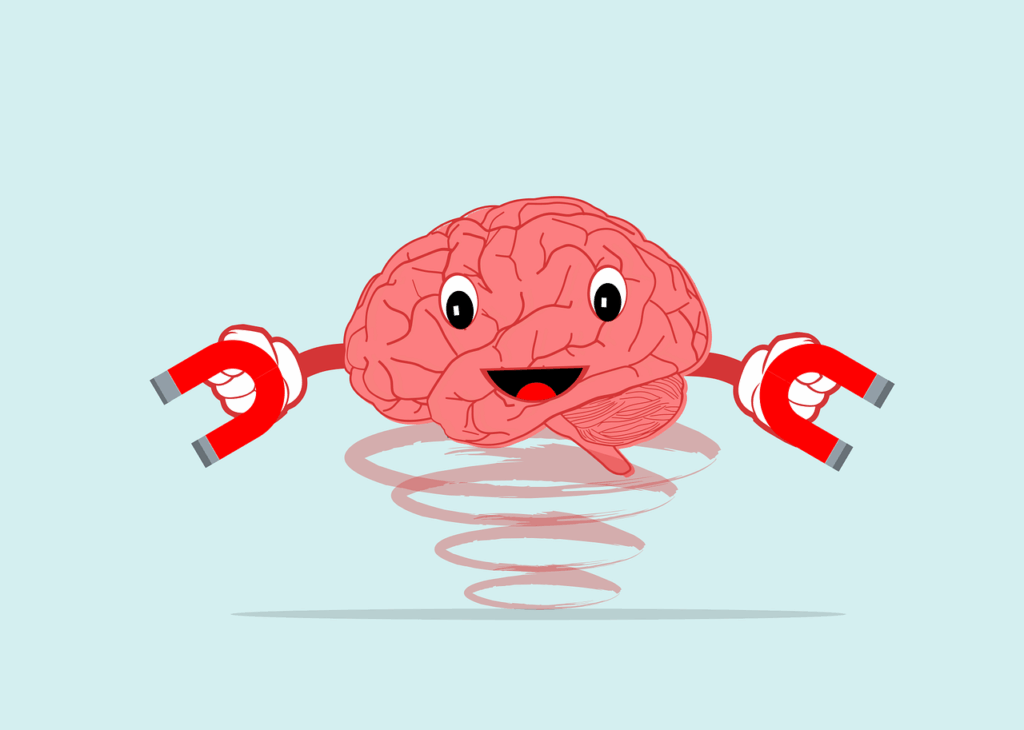
9. **Protect Your Hearing: A Shield for Your Brain**Taking diligent care of your ears can offer far more protection for your brain than many might realize. Untreated hearing loss, particularly in midlife (ages 40 to 60), has been identified as one of the most significant preventable risk factors for dementia. This connection is profound, as researchers theorize that a reduced ability to hear well forces the brain to expend extra effort to decode sounds, potentially diverting cognitive resources away from critical memory and thinking processes.
Moreover, hearing loss can inadvertently lead to social withdrawal. Individuals who struggle to hear may find themselves pulling back from conversations and social activities, which in turn reduces the vital mental and social stimulation that the brain needs to thrive. This isolation can exacerbate the risk of cognitive decline, making hearing health an interconnected aspect of overall brain well-being.
To safeguard your hearing and, by extension, your brain, proactive steps are essential. If you notice signs such as needing to turn up the TV volume or frequently asking others to repeat themselves, it’s crucial to get your hearing tested. Modern hearing aids have advanced significantly, becoming both highly effective and far more discreet than older models, helping to keep your brain actively engaged with the world.
Preventing long-term hearing damage is equally important. Always protect your ears in loud environments by using earplugs or noise-canceling headphones when exposed to loud machinery, attending concerts, or even using power tools. If you use headphones for music, adhere to the ’60/60 rule’—listening at no more than 60% volume for 60 minutes at a time, and taking regular breaks. Including yearly hearing checks in your routine healthcare, especially after age 50, can help catch and address any issues early, making a substantial difference in your long-term brain health.

10. **Be Mindful of Medications: Understanding Their Brain Impact**It’s important to recognize that both prescribed medications and over-the-counter drugs, much like alcohol, can significantly influence how brain cells communicate with one another. These substances can have a direct impact on your brain’s complex capabilities, including its ability to react swiftly, plan effectively, solve problems efficiently, and control impulses. This makes careful medication management a vital aspect of maintaining cognitive health.
Given these potential effects, adhering strictly to the directions on all medicines is paramount. This applies universally, whether you are taking a prescription medication issued by your doctor or a non-prescription remedy purchased off the shelf. Misuse or incorrect dosages can lead to unintended cognitive side effects, ranging from temporary confusion or ‘brain fog’ to more significant and lasting impairments.
If you have concerns about how a particular medication might be affecting your thinking, memory, or overall brain function, or if you notice any unusual changes after starting a new drug, it is always advisable to consult with your healthcare professional. They can assess potential interactions, adjust dosages, or explore alternative treatments to ensure your brain’s intricate operations remain as clear and unimpaired as possible, thereby safeguarding your cognitive abilities.
11. **Actively Manage Diabetes: Guarding Against Cognitive Risks**Diabetes, a prevalent chronic medical condition, is not merely a concern for your metabolic health; it poses a significant and often underestimated threat to your brain. Chronically elevated blood sugar levels, a hallmark of untreated diabetes, can progressively damage the delicate blood vessels that supply the brain, increasing the risk of both stroke and subtle, cumulative impairments to memory and thinking. This damage can accelerate cognitive decline and raise the risk of developing various forms of dementia.
Research consistently highlights that effective management of diabetes is a powerful strategy to protect brain function. Studies have shown that diligently treating conditions like diabetes can significantly lower the risk of cognitive decline, even in later life. This underscores the profound impact that proactive disease management has on long-term brain health, emphasizing that it’s never too late to make improvements.
For individuals with diabetes, adhering to your healthcare professional’s guidance on treatment and control is absolutely essential. This includes monitoring blood sugar levels, taking prescribed medications consistently, and adopting lifestyle interventions that support glycemic control. These measures not only improve your overall health but also actively work to shield your brain from the damaging effects of uncontrolled blood sugar, preserving its intricate networks and functions.
Preventive health measures are key, even for those without a current diagnosis. By embracing a balanced diet, engaging in regular physical activity, and maintaining a healthy weight, you can reduce your risk of developing type 2 diabetes, thus preemptively protecting your brain from one of its significant modifiable risk factors. These holistic approaches create a robust defense for your cognitive well-being.
12. **Control High Cholesterol: A Key to Vascular Brain Health**High cholesterol, or hyperlipidemia, is another chronic condition that significantly impacts cardiovascular health and, consequently, brain health. While its effects on heart disease are widely recognized, elevated cholesterol levels can contribute to the formation of fatty plaques within arteries throughout the body, including those vital vessels supplying the brain. This process, known as atherosclerosis, can impede crucial blood flow, leading to oxygen and nutrient deprivation in brain cells.
This restricted blood flow, resulting from plaque buildup, can silently contribute to cognitive decline over time, increasing the risk of silent strokes and vascular dementia. The ‘Heart and Brain Health: The Connection’ concept emphasizes that what is beneficial for your heart is equally beneficial for your brain. Therefore, actively managing high cholesterol is an integral part of a comprehensive strategy for safeguarding your cognitive abilities.
Taking control of your cholesterol levels requires a multi-faceted approach, often guided by your healthcare professional. Dietary modifications, such as limiting saturated and trans fats and increasing soluble fiber, can be highly effective. Regular physical activity, a cornerstone of overall health, also plays a role in improving cholesterol profiles. If lifestyle changes alone are insufficient, medications are available that can effectively lower cholesterol, and consistent adherence to these treatments is crucial.
Embracing preventive health measures to address high cholesterol is a tangible way to reduce the strain on your brain’s delicate blood supply. By maintaining healthy blood vessels, you ensure optimal blood flow and oxygen delivery to brain cells, which in turn reduces the risk of strokes and helps to preserve your long-term memory and thinking skills. This proactive management provides essential protection for your brain’s intricate vascular system.
Read more about: Cracking the Cholesterol Code: New Research Reveals Why Eggs Are Not Your Heart’s Enemy, And What Truly Is
13. **Embrace Social Connection: Nurture Your Relationships**As humans, we are inherently social beings, and our brains are wired to thrive on interaction. Maintaining an active social life and fostering meaningful relationships stands out as a remarkably powerful way to protect your cognitive health throughout your lifespan. Conversely, social isolation and pervasive loneliness, particularly as we age, have been strongly linked to a heightened risk of memory loss and the development of dementia, with some experts even drawing parallels to the health impact of smoking.
Regular social engagement offers a unique ‘cross-training workout’ for your mind. When you communicate with others, your brain is actively engaged in a multitude of complex tasks: processing language, recalling shared memories, interpreting subtle facial expressions, and responding empathetically to emotions. This constant mental exercise helps to keep neural circuits tuned up and contributes to building cognitive reserve, enhancing your brain’s ability to resist damage.
Beyond the cognitive benefits, social connections provide invaluable emotional support. Having a robust network of friends and loved ones to talk to can act as a crucial buffer against stress and depression. Both stress and depression, if left unmanaged, are known risk factors for cognitive decline, so nurturing these relationships plays a dual role in supporting both your mental well-being and brain function.
To strengthen your social connections, make it a point to keep in touch regularly with friends and family, whether through in-person visits, phone calls, or video chats. Consider joining groups or clubs that align with your interests, such as a book club, a walking group, or a community organization. Volunteering or participating in community activities can also provide a sense of purpose and expand your social network. Remember, even combining physical activity with social interaction, like joining a group exercise class, offers synergistic benefits for your brain.
Read more about: A Life of Laughs and Silent Battles: Revisiting Robin Williams’ Enduring Legacy and the Unseen Struggles He Faced

14. **Prioritize Mental Health: Manage Stress and Depression**Mental health and brain health are inextricably linked; they are two sides of the same coin. Conditions such as chronic stress, persistent anxiety, and especially clinical depression can exert a profound negative impact on your cognitive function over time. Depression, in particular, is far more than just feeling sad; it’s associated with measurable physical changes in the brain. Long-term depression can lead to elevated levels of the stress hormone cortisol, which, if unchecked, can damage brain cells and potentially cause shrinkage in brain regions critical for memory.
It’s therefore not surprising that a history of depression, particularly if it remains untreated, is strongly linked to an increased risk of developing dementia later in life. The Lancet Commission specifically identified late-life depression as one of the modifiable risk factors for dementia, underscoring the vital importance of actively managing your mood and emotional well-being as a direct investment in your brain’s future health.
If you find yourself struggling with symptoms of depression, chronic anxiety, or overwhelming stress, it is crucial to reach out for professional help. Caring for your mental well-being is a direct act of caring for your brain. Treatments for depression, which can include therapy, medication, or a combination of both, not only significantly improve your current quality of life but also have the potential to reduce your risk of cognitive decline down the road. Do not hesitate to consult your doctor or a counselor about persistent sadness, loss of interest, constant worry, or any subtle changes in concentration, sleep, or appetite.
Beyond professional interventions, integrating stress-reduction and mood-boosting habits into your daily routine can make a substantial difference. Prioritizing 7-9 hours of quality sleep each night is fundamental, as poor sleep can exacerbate mood and cognitive issues. Practicing relaxation techniques such as mindfulness meditation, deep breathing exercises, or yoga, even for just 10 minutes a day, can effectively lower stress levels. Furthermore, staying socially and physically active, as discussed in previous points, are natural antidepressants and stress relievers, alongside making time for hobbies and activities you genuinely enjoy. These holistic approaches fortify your mental health, providing a robust shield for your brain.
Our brain, though just three pounds, is the undisputed command center of our existence, orchestrating every facet of who we are. While it’s true that neurons don’t readily replace themselves, the profound insight from scientific research is that you hold a remarkable degree of influence over your brain’s destiny. The 14 evidence-based actions we’ve explored, from working up a sweat and protecting your head to nurturing your social connections and mental health, are not mere suggestions; they are powerful, actionable steps that can collectively fortify your brain against decline and significantly enhance its resilience.
Read more about: Bruce Willis’s Frontotemporal Dementia: An In-Depth Look at Care Decisions, Family Dynamics, and Expert Perspectives
Every decision, every small lifestyle adjustment you make today, contributes to the long-term health and vitality of your brain. As Dr. Wint emphasizes, ‘While there’s no absolute 100% way to prevent degenerative brain disease, you can substantially reduce your risk with lifestyle habits.’ It’s never too late to start making these beneficial changes, and even if some decline is present, proactive steps can lessen its severity. Embrace these brain health tips, and empower your brain to function at its best for years to come.


